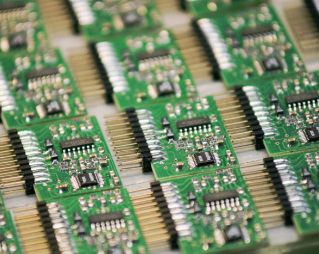
”Belgium is at the forefront in Europe in artificial intelligence in health”claims Dr. Giovanni Briganti, clinical doctor and head of the AI4Health working group within AI4Belgium, the federal ecosystem for artificial intelligence.
Thus, the “National Convergence Plan for the Development of Artificial Intelligence” concocted by the Secretary of State for Digitalisation, Mathieu Michel (MR), contains a specific chapter devoted to health. And “we have an innovation budget of 20 million euros for 2024 which must be used to bring AI to the fore in healthcare”, underlines the office of the Federal Minister of Health, Frank Vandenbroucke (Vooruit). This amount will be used a priori to finance projects selected on the basis of a call for projects.
Three pilot projects in Belgium
For now, in Belgium, there are already three “clinical decision support” projects: for medical imaging, clinical biology laboratory tests and physiotherapy.
“The objective is to set up three electronic applications at national level which will help requesting doctors to prescribe the right examination for the right patient. The implementation of these applications is inprogressexplains Vandenbroucke. It is not currently artificial intelligence as such but a classic decision tree system based on evidence, with the aim of supporting doctors in the prescription of medical imaging, clinical biology or antibiotics. However, an evolution towards an AI model based on “experience” can be foreseen and will be studied if necessary.”
According to Giovanni Briganti, AI finds applications, already more or less used, in three major areas of health. Firstly, the clinical domain, that is to say “the relationship between the doctor and the patient, and how the doctor will be able to treat the patient faster and more effectively”.
More accurate diagnoses
”In this area, the biggest activity is diagnostic assistance”, especially for radiologists, pathologists (organ, tissue and cell specialists) and clinical biologists. The role of the AI is to write from the patient’s examinations a kind of pre-diagnosis which will be submitted to the doctor.
–
In the clinical domain, AI will also play a role in the management of diseases at home, especially in cardiology, neurology and diabetes. Its mission will be to alert the doctor when it detects anomalies in the patient’s parameters that the patient has identified himself using connected devices.
The second area highlighted by Giovanni Briganti is the administrative, paraclinical area. AI will reduce administrative burdens, for example by facilitating the management of operating rooms.
Finally, the third area is research and development.
Substantial savings
The ultimate hope of AI in healthcare is that patients will be treated faster, better and at a lower cost. Earlier and more precise diagnoses indeed guarantee better cure rates, using less heavy treatments, especially if these are better calibrated. And all of this should generate cuts in health care spending.
Thus, according to the European Commission, the creation of a European Health Data Space (EHDS) “should allow the[Union européenne] to save approximately 11 billion euros over ten years” – the exploitation of large-scale data is essential to the development of effective AI.
And according to Mathieu Michel, “it is estimated that a high-performance health system in terms of predictive medicine, early diagnosis and appropriate treatment can easily reduce health expenditure by 20 to 30%. When we know that the health care budget in Belgium is 35 billion, we see the amounts involved. That said, he concludes, “the goal is not to cut budgets. The goal is to improve health care. We can very well decide to keep the budgets unchanged and to increase the benefits. It will be a political choice.”










